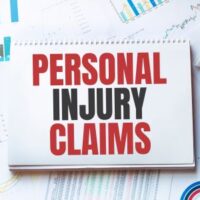How Does Proximate Causation Affect a Georgia Car Accident Lawsuit?

One of the necessary elements of any Georgia personal injury case is establishing proximate causation. In simple terms, the plaintiff must prove that “but-for” the defendant’s negligent or reckless act, the plaintiff’s injury would not have occurred. This means that a defendant can avoid liability by showing that an intervening act by a third party “broke” the chain of causation and was the real cause of the plaintiff’s injury.
Court Finds Employer Not Liable After Suicidal Employee Stole Truck, Injured Two People
Another aspect of proximate causation is that the harm to the plaintiff must have been reasonably foreseeable by the defendant. To give a simple hypothetical example, if a driver runs a red light and slams into another vehicle, it is reasonably foreseeable that such reckless behavior could lead to an accident. But if there was some superseding cause that was not foreseeable–say the driver ran a red light because he suddenly suffered a heart attack and lost consciousness–that would likely result in a court finding no proximate causation.
Another common example of an “unforeseeable” superseding event is a criminal act. If someone steals a car and causes an accident, the owner of the car is generally not considered liable because they could not have foreseen the theft. However, if there is proof that the owner had “reasonable grounds” for believing their car would be taken and lead to an accident, that can establish proximate causation. But this is a high bar to clear.
Take this recent decision from the Georgia Court of Appeals, Self v. Local Mechanical Networking, Inc.. This personal injury case involves two people injured in a series of car accidents. The vehicle responsible for the accidents belonged to the defendant, a company that provided plumbing services. The driver was one of the defendant’s employees.
On the day in question, the employee and his supervisor traveled to a job site. The employee told his boss that he had taken drugs over the weekend and that he was having some personal difficulties. After arriving at the job site, a local building, the employee went to the third floor with the intent of committing suicide. He did not go through with this attempt, but instead continued speaking with his supervisor in a “visibly agitated” and “crying” state, according to court records. The supervisor then left the employee in the truck to calm down.
But the employee ended up driving off in the truck, and in doing so caused multiple traffic accidents, which injured the two plaintiffs in this case. The plaintiffs later sued the employer, alleging its negligent supervision of the employee was the proximate cause of their injuries. The trial court disagreed and granted summary judgment to the employer. The Court of Appeals affirmed the trial judge, holding that the employee’s “criminal act of stealing” his employer’s van was not a “probable consequence” of the supervisor’s conduct.
Contact Hawkins Spizman Trial Lawyers Today
Determining proximate causation in a Georgia car accident case is often more complicated than victims realize. That is why it is crucial to work with an experienced Fulton County personal injury lawyer who can review your accident and advise you on an appropriate course of action. Contact Hawkins Spizman Trial Lawyers today to schedule a free consultation. We serve clients throughout Georgia including Atlanta, Dunwoody, Alpharetta, Cobb County, Fulton County, Gwinnett County, Johns Creek and Sandy Springs.
Source:
scholar.google.com/scholar_case?case=12119864817903257548
